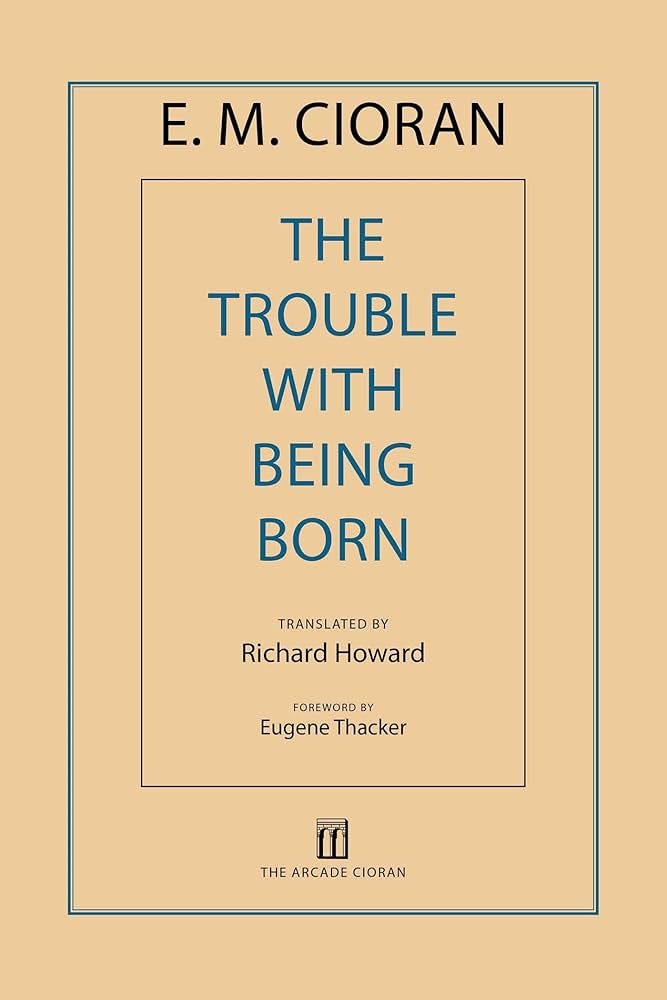The Trouble with Being Born
"There is nothing to say about anything. So there can be no limit to the number of books."--Emil Cioran
For being eccentric, contradictory, perverse, and resistant to intellectual theorizing, the Romanian philosopher Emil Cioran is compared to the author of the Zarathustra. Cioran disdains that comparison—he finds Nietzsche far too naïve.
He demolished so many idols just to erect new ones in their place; he observed men from a grand, almost celestial distance—if he had come closer to man he could have neither conceived nor promulgated the superman.
Cioran feels closer to Aurelius. The lyrical weary voice of Stoic acceptance. His equestrian statue, untouched by the barbarian invasion and the erosion of ages, is the only one to survive. There remains the least emperor of them all preserved—a great irony, poignant and profound.
To my ears, there is something of The Preacher, son of David, King of Jerusalem in his voice. Vanity of vanities all is vanity, naught but herding wind and grasping at smoke. Everything wearisome beyond description yet the eye continues seeing, and the ear continues hearing—never filled or satisfied.
It’s like Cioran himself is falling deeper and deeper into fatigue. He used to write essays But why bother? Now he writes in aphorisms a Fire without a flame. Yet the good people can warm themselves by this fire, for the skeptic is genuine in his loathing and all-inclusive to those who refuse to dogmatize.
It is human nature to separate and categorize, to mourn the loss of some mythical golden age. When folklore thrived, they called it the age of divine wisdom: Homer and the foundations of Greece, the Upanishads, European fairy tales. What follows is the age of belated acceptance—Stoic resignation, Alexandrian gnosis, Mahayana Buddhism, each rejecting the world in turn.
We are at a strange crossroads. In a unique, silly, and paradoxical position. I am referring to the nature of being alive. We see the plastered smiled-on enthusiasm of the life-cult. We see the chaos and entropy of the death-cult. One appeals to my intellect, yet they are ridiculous, like teetotalers who live in a bar to better protest the drinking. Absurdity is a necessary component of being alive.
The value of reading Cioran lies in his ruthless ability to unearth suppressed beliefs and subconscious longings. Where you are still clinging to sugar? Where are you still harboring a faith in Santa Claus? But beware the slide into nihilism. To take negation as literal truth is simply optimism inverted—a mirror image of the same mistake.
You can stare at the ocean, the sea in which everything arises and passes away. You can look at its majesty or its vastness, how its horizons never set how it reaches out. Or you can fixate on a stray piece of seaweed, letting it upset you. But would the ocean care? Its nature is immutable, indifferent. Problems cannot register. So, which view would you rather adopt? What kind of life would you choose to live?





Nothing here to grasp
Move on
Move on
Breathe in
Breathe out.